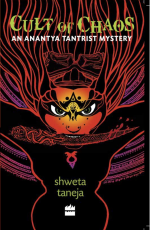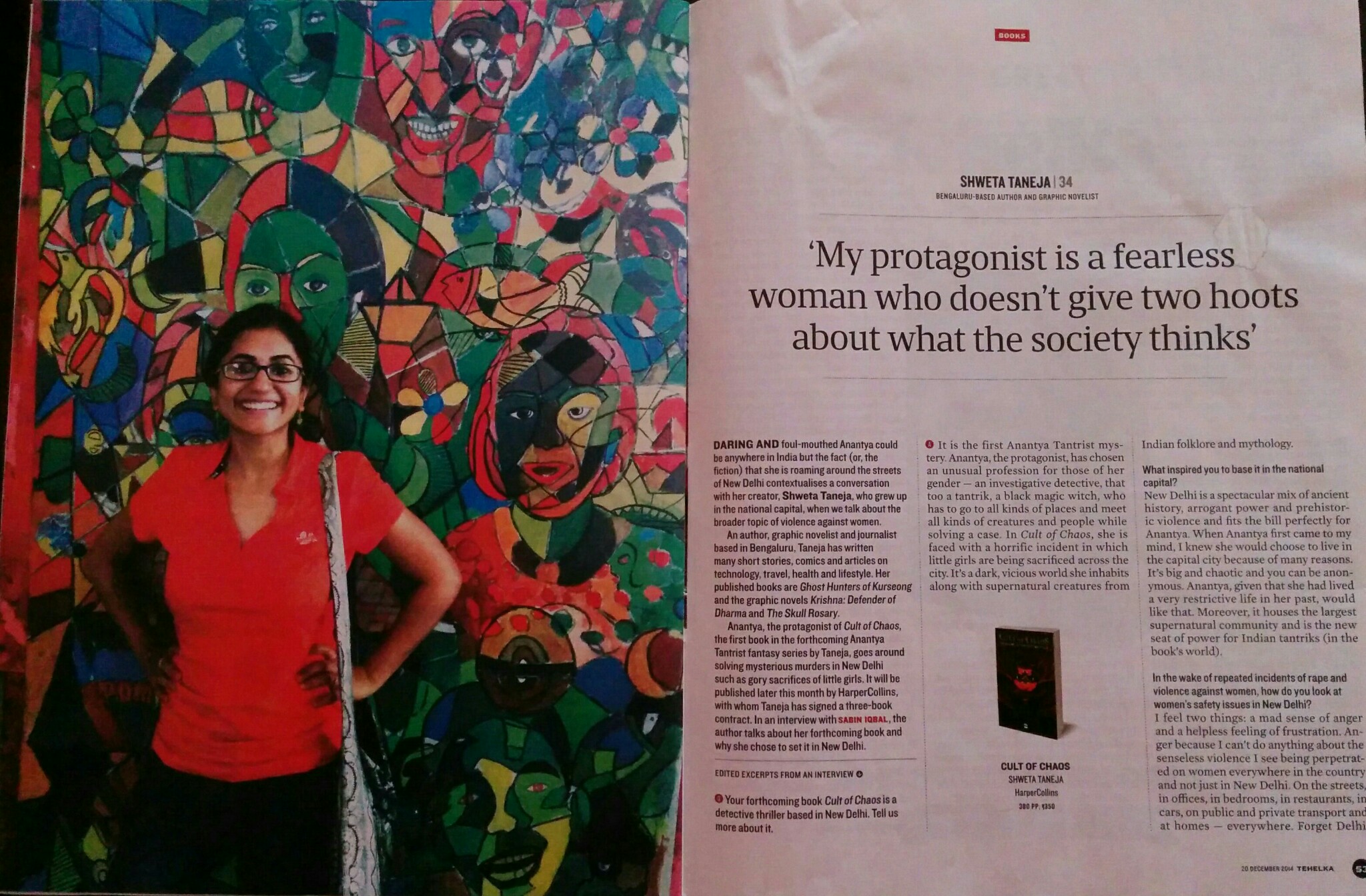Isn’t this quite cool? I didn’t know that business dailies would show interest in picking up this story for their magazine sections. So the same interview, conducted by this really sweet lady from PTI, was carried over at two of the major financial dailies: Economic Times and Business Standard.
Here’s the interview in its full glory. Won’t say I am not itching to tweak a byte or two, but I guess editing can always change the meaning a bit. As a journalist, I understand that more than anyone else.
Shweta Taneja’s new book ‘Cult of Chaos’ delves into Delhi’s underbelly
NEW DELHI: The terrible, scary and horrific side of society is explored in a new book, billed as the country’s first tantrik detective novel, which also talks about the key issue of women’s safety.
Author-graphic novelist Shweta Taneja’s ” Cult of Chaos” is based in the supernatural underworld of Delhi.
Even though this is a fantasy fiction, and I could’ve made everything up, I wanted to stay a layer away from the real. That’s the reason that I set up the world of ‘Cult of Chaos’ in contemporary Delhi, a real city, weaving supernatural elements and creatures within its bowels,” she says.
“The species in the book’s world, as well as the tantrik magic that Anantya (the protagonist) wields, has been created after extensive research on tantrism, the occult and Shakta traditions in the country. I’ve delved deep into the folklores, folktales and the rituals of sorcery in villages,” Taneja told PTI.
Anantya Tantrist, a 23-year-old, is a completely inverted model of an ideal woman.
“She smokes beedis, walks in Delhi at night, alone, has sex with all kinds of creatures, is fearless, has chosen a profession which is violent and bloody, and she doesn’t care about what anyone thinks of her. So the book is also about her reaction to the regressive tantrik society she belongs to and the abuse she has faced in her past,” the Bangalore-based author says.
“Even though the species and the creatures I’ve mentioned in the book are make-believe, the violence, the power-play, the abuse, the unfairness they suffer, is not. The feelings, the emotions, the reactions the book reflects are all real,” she says.
Anantya emerged from Taneja’s first attempt of a novel, a revenge fantasy saga where a young girl is abused and seeks vengeance from those who’ve wronged her. That book never materialised but Anantya stayed as the author explored the possibility of combining two of her favourite genres – fantasy and detective.
According to Taneja, some of the scenes in the book, published by HarperCollins India, were inspired by incidents in real life.
“There were so many scenes in the book I wrote, where I wove incidents I’d just read in the newspaper, something a crass politician had said when yet another woman got raped; someone who had been demonised because of the way they looked or their surname.”
Taneja also touches the issue of women’s safety in her book saying women have to struggle for their safety in every corner of this country.
“But no walls, no government, no men, no police, no institution or clothes can protect us from violence. What can make a difference is if all of us, women and girls, go outdoors, claim public spaces, again and again, fearlessly, in spite of the violence,” she says.
“We need to own the spaces, only then can we be safe. Be fearless and walk alone at night as a woman. Something that I’ve tried in fiction with Anantya, who chooses a profession that takes her out at night, alone,” she claims.
Taneja has earlier written a novel “The Ghost Hunters of Kurseong” and graphic novels “Krishna: Defender of Dharma” and “The Skull Rosary”.
“I deliberately experiment with different stories and storytelling devices. Not only age groups, or styles, I also love experimenting with mediums. I’ve worked with various mediums in my short history as a fiction writer: be it graphic novels, comics, short stories, novels, collaborative stories, or even games,” she says.
========



